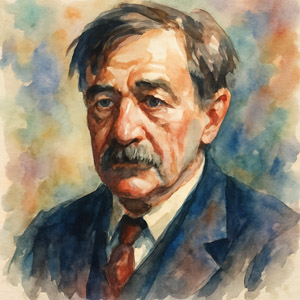 Journalist and short-story writer Sherwood Anderson (1876–1941) was born on this day in Camden, Ohio. His willingness to take on odd jobs as a teen earned him the nickname, "Jobby."
Journalist and short-story writer Sherwood Anderson (1876–1941) was born on this day in Camden, Ohio. His willingness to take on odd jobs as a teen earned him the nickname, "Jobby."
"All of the men and women the writer had ever known had become grotesques," he observed.
Anderson served in Cuba near the end of the Spanish-American War before turning full-time to writing. He constantly searched for meaning in life while examining the tragedy of death.
"There is this thing called life," he said. "We live it, not as we intend or wish, but as we are driven on by forces outside and inside ourselves."
At age 36, "sick of responsibilities and a growing debt," he suffered a nervous breakdown. Anderson defined this as a symbolic rebirth. "There is and can be no moral balance like the long difficulty of an art," he said.
His acclaimed story cycle, Winesburg, Ohio (1919), was called his most important work. The collection celebrated small-town life. With Carl Sandburg, Ben Hecht, and others, Anderson created a midwestern literary renaissance.
"I am one," he said, "who loves, like a drunkard his drink, the smell of ink, and the sight of a great pile of white paper that may be scrawled upon always gladdens me."
Malcolm Cowley called Sherwood Anderson "the only storyteller of his generation who left a mark on the style and vision of the generation that followed... Hemingway, Faulkner, Wolfe, Steinbeck... each owes an unmistakable debt to Anderson."
 Truth glows. Trust it. Tell it.🖋️💛
Truth glows. Trust it. Tell it.🖋️💛
